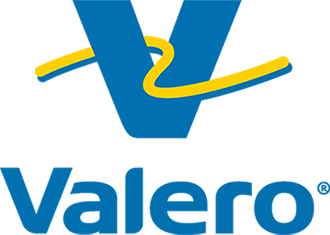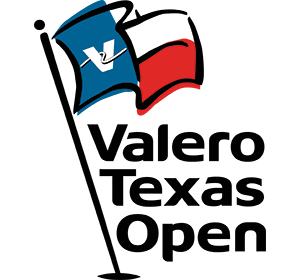Media Center Interviews
April 4, 2021
Final Round Interview with Jordan Spieth
DOUG MILNE: We would like to start and welcome the 2021 Valero Texas Open champion, Jordan Spieth.
Jordan, congratulations, 6-under 66 to get the job done today. Your 12th career win, move to No. 7 in the FedExCup standings. Withx all that said, so many of us have been thrilled, waiting, knowing it's just a matter of time to get you back in the winner's circle. Here you are. With that said, can we just get a few comments?
JORDAN SPIETH: Yeah, I feel grateful. I feel -- I feel really -- you know, it kind of bounces off and on right now when it hits me that I'm back in the winner's circle. It's been a road that's had a lot of tough days. I've had people in my corner that have always believed in me even when I've kind of believed less in myself.
I just feel a lot of gratitude to those who have helped me kind of get back here. My wife has been just a rock to me. This is my first win since we've been married, so it's been progressing this way since maybe December. Before that, there was a lot of tough times. When you're struggling at work, you try not to bring it home and that kind of stuff. I'm very grateful for the people that I have around me. I'm blessed with a great family who's always just looking out for my best interests. I've got an amazing team and I get put in position and I've got full trust in everyone that's on my side that they're going to be the best at what they do and I've just got to go out and feel the freedom to go enjoy playing golf.
DOUG MILNE: You kind of touched on that with that answer, but I was taken by your comment earlier on the green where you really spoke highly to the value of lightness that's kind of come over you. Is that (no microphone.) take care of themselves if you keep practicing what you've been doing.
JORDAN SPIETH: Yeah. I really didn't have great control of the ball this weekend at all. When I would have really maybe started to freak out and change swing feels, instead I stuck to my guns and said what I'm doing is the right thing, let's just try and figure out what we've got. Do we have a shot that we can play? How are we going to step into this next one confidently? Let's play some Bubba shots if we need to, some bigger turners one way or the other to just establish some feel in the game and get away from kind of the technical side when the technical side doesn't feel great. That's been a learning process over the last kind of few Sundays in contention when you get a little anxious and you're a little tighter and you're not kind of swinging as freely.
I thought today just that lightness stayed about me the whole day. Even when Charley kept throwing birdies at me, I was able to kind of just say, all right, if we hit it to point A here, we hit it to point B here, put a good stroke on it here, we're going to get this job done. We're in the lead, we're in control.
I've done really well in my career in closing with the lead. The extra nerves today were just in not wanting to have to sit there and have it be a few times in year and that monkey on my back that continues to be there that I don't feel myself, because when I'm in contention, I feel a lot of positivity. But it's sometimes difficult to kind of separate that from the expectations when you step in an interview room and you're supposed to win all the time. For me, it's been about throwing out results and instead work on freedom. If I'm feeling freedom out there, I'm loving what I do and if I love what I do, I'm going to do it well.
Q. Jordan, happy Easter?
JORDAN SPIETH: Same to you.
Q. And congratulations.
JORDAN SPIETH: Thank you.
Q. Would you classify this maybe more as a mental win as opposed to a performance-type win, because there's a lot of hurdles in golf that are more mental than anything else?
JORDAN SPIETH: It's a good question. It's so soon. I probably will, yeah. I probably will classify it more as an important mental, yeah. I actually -- but at the same time, I didn't -- I didn't feel any extra nerves that I didn't have a couple months ago or even a few years ago.
Looking back, yeah, I can say off the course there were certainly I felt a little like I really wanted this badly versus I really want to be back in the winner's circle versus just kind of playing and going about the season. But really, I think I could say the same about kind of the actual performance piece of it as well. This was the performance is what for me threw off the mental side, the mechanical side of things, and at least to get on the right track has given me enough kind of freedom and start lines to have the confidence to -- when Charley chips in on 13 and hits a bomb on 14 and all of a sudden, it's at two shots. I've got to step up and hit a shot when there's trouble right when I've really historically, when I was off, that would have been just an awful tee shot for me. To step up and hit just a beautiful drive down the left side, it's just stuff like that that I've been building that confidence on the performance side over the last couple months under pressure. I've hit some really good shots and I've hit some really good putts. Today, the putts happened to go in versus, say, there in Orlando or Pebble or Phoenix.
Q. Just one more thing. You made winning look so easy a few years ago and I'm wondering, did it feel easy to you then and why did it get hard after it looked so easy?
JORDAN SPIETH: Yeah, I mean, it's never been easy. Did it look hard today? I shot 6 2 under and made five birdies, no bogeys after the fourth hole. So I guess I would say it actually probably looked easier today than it did in 2017 in the British and in Travelers. So, I mean, it's never been easy.
I've always been somebody that under pressure has had tendencies that I've had to learn and get through. I don't know if there's anybody that plays better golf -- anybody in their own game that plays better golf under pressure than when they're just totally comfortable. So it's all about that fight of learning how to control that.
It's never been easy. I really struggled after my first win to get my second, and I had a lot of chances when I was swinging the club a lot better than I am right now and just didn't pull it off. I'm way stronger mentally than I was in that 2014 time frame and I can compare it kind of to then as just a time where I struggled to get into the winner's circle, in contention, and that's why I draw the similarities. I had to kind of learn the patience of a final round and it just took me a couple extra times over the last couple months in contention to just kind of relearn that a little bit, relearn that patience and that lightness that you need that anything can happen. Expect Charley to chip in, but knock it in right on top, or just keep playing point A to point B, set a goal for the rest of the round and play the golf course and don't play the field. It's just little things like that, keeping your head down and just understanding if you've got enough, then the bounces are going to go your way if you keep putting yourself in position.
Q. You played great today and congratulations again.
JORDAN SPIETH: Thank you.
Q. Hey, Jordan. Many congrats. I wonder, is there anything that in your view has been made too much of since 2017?
JORDAN SPIETH: I'm not really sure. I do a really good job of blocking out the noise. The only noise I hear is really just in the interview room. I don't see anything, don't read anything. I mean that. I started doing it kind of in the middle of 2018 and it's been really good for me. I haven't missed it. So I couldn't tell you.
I've certainly -- there's probably been people who have blown up on one side and the other. I mean, I'm sorry, I wish I had a better answer for you. I'm not sure what maybe would have been such a big deal other than if it's a massive deal to not win over a three-year time frame, it means that you were pretty successful before that. Because no one was telling Charley Hoffman -- I mean, no questions were asked about the last time he won, or Matt Wallace. I guess that's expectations, maybe age, whatever it may be, past history. But if anything, that should only give me more confidence that my abilities should be that I'm in this position very often and that's the goal.
Q. And one more, please. Given what you've been through since 2017, how do you manage these powerful things like expectations and assumptions and what you might have taken for granted before now?
JORDAN SPIETH: Now going forwards?
Q. Yes.
JORDAN SPIETH: I'm still -- I'm still -- I've got quite a bit to piece together in my game, so it's actually pretty easy for me to put my head down and actually focus on getting to work for this next week. I've got some things that regressed a little bit in my swing over the weekend this week versus how good it kind of felt maybe Thursday, Friday.
So it's actually pretty easy because until I get to hitting, you know, eight out of nine or nine out of ten shots the way that a couple of them felt on Friday, I'm not done working at what I'm working on. When I look visually at kind of my action right now, it's kind of -- there's some good pieces to it that are close to at least matching up into the golf ball appropriately, but the consistency and the cleanup and kind of the tightness of the swing has still quite a ways to go. That excites me, that really excites me at this stage where I'm at.
Q. Twelve through 18, I think coming into today you were 10 under. I know you haven't done this in three or four years, but did you feel like, hey, you know what, I'm in a spot where I know I can score? Was there a comfort zone knowing that going into those final holes -- I think, what did you have, three birdies in that stretch again today? It just felt like it was something where you knew, hey, this is a place where I've been doing it so it was a comfortable spot to be in?
JORDAN SPIETH: No, it's a good question. Actually, for me, I hit the fairway 9 and I thought, okay, any uncomfortable tee shots I have now are kind of over with. I thought once I make the turn on 10, you get a little bit of -- it's visually just an easier nine to hit tee balls other than really 14, it kind of disappears on you a little bit. I thought 14, 15 were the two tee balls that were important and the other ones I felt just a little bit easier on.
I've just had a really hard time on No. 1, No. 4 and No. 9 historically on this golf course visually. I thought once I kind of got that ball in the fairway on nine and made a par and those guys made par, I felt really confident going into the back nine with a couple-shot lead. Even though I knew Charley was playing well and the wind was dying down, he'd have to make birdies. I made better swings on the back nine today than I did on the front, and the other rounds it was kind of almost -- it was almost -- or Thursday and Friday it was almost flipped.
Yeah, there was -- I was sitting there saying I've got wedge opportunity on 11, 12, 14 you've got a chance. Then having made birdie on pretty much every hole coming in earlier in the week, that was -- there was a level of comfort there that went away maybe on 17 after Charley made it on 16 and then I couldn't tell how close he was on 17. So those kind of -- the approach shot into 17, the ensuing putt and then the drive on 18 were kind of the three best shots I've hit in a very long time under that kind of pressure. They were just difficult. I hit my hybrid about 300 and I don't really know how. Almost got a little too close and hit a really nice wedge and really nice putt. That was the difference maker obviously.
Q. We let you have like 90 seconds to enjoy this. Of course we have to start talking about future goals and things. The three previous majors that you've won, you've either came in first, second or third the week before. Man, that's got to be a good feeling knowing what you've got coming ahead of you, right?
JORDAN SPIETH: Yeah.
Q. This is usually where you want to be going into something like Augusta?
JORDAN SPIETH: Yeah, absolutely. I mean, in form is probably the most important kind of phrase in our professional sport. I felt in form for a little while now. I felt that that form needs to improve in certain ways and I know how to do it. It's just reversing the tens of thousands of balls I hit the wrong way so it's going to take however many thousand the right way in practice to transfer fully to the golf course. But I felt in form enough to trust shots and really gain a lot of confidence under pressure and playing golf. And I go to a place that I feel really -- I've almost won there after almost missing the cut the week before, I've won there after finishing runner-up.
Really for me going into the Masters, I miss the cut this week or I won the golf tournament, there would be very little difference in my mindset going into Thursday at Augusta. But certainly there is still a bit of difference and that is that I had to hit shots under pressure and see where things were on and where things were off and make these just minor adjustments as we go into these practice days.
Q. Last one real quickly because, you know, I know my spouse. If I hadn't won something for a long stretch after getting married, my wife I know would be like, thank God, you finally did that so people don't say it's me. What's the reaction from Annie? Because she has been so supportive, you've talked about it multiple times over the past few years. We did this together finally, you know what I mean?
JORDAN SPIETH: Yeah, she got me emotional there on 18 seeing her emotional running up. I mean, I can pinpoint a number of different moments where I've been in a bad place and then I can picture some moments where I've been just talking so positively to her coming home and having her just help progress that forward. She's just given me a lot of space. I've asked, I've said, look, I'm going to have to put some long hours in, even longer than when you've known me before. This is what I want right now. We don't have a family yet and I really want to get back to playing consistent golf and just being me and playing with freedom.
She's just been that person that said whatever you need to do, I'm here to support you, let me now how I can help, let me know when too much is too much, let me know when it's not enough. She's been really unbelievable.
Q. Jordan, you said in your television interview that the victory was monumental. I think we can understand why because it has been a tough road to get back to where you want to be. That's the way golf is. Can you put into words the feeling, whatever the emotion is, of getting over this hump again and knowing now going forward, well, I've got this, I've got this again, I've been through the experience?
JORDAN SPIETH: Yeah. Yeah, I think I probably used an adjective that was a little aggressive just having been 30 seconds after the putt went in.
Q. I didn't think so, but go ahead.
JORDAN SPIETH: Yeah. I mean, well, I actually didn't feel -- I felt I would be more emotional on the green or when I tapped it in and it fortunately felt somewhat comfortable. I felt pretty comfortable even there on 17 just trusting the process and what I was doing. Even just closing in, I felt like it was -- I'm supposed to do this, this is like me, this is what I do. That kind of attitude.
I mean, I've had it come in the other way, too, and that kind of came onto me with that kind of confidence today. Just saying whatever Charley's going to throw at me, I'm going to be the one that has the chance to win on the last hole. I just -- I think that, you know, when I said that afterwards, I think that it's just nice to then feel a little freedom off the golf course. I think that's more important. I already felt what I wanted was the freedom on the golf course, but it's nice to just -- to know that I'm not stepping into always negativity everywhere I'm going in and getting asked questions. That hasn't really been the case over the last couple months, but boy, I'm so -- I've been so positive lately, our team's been so positive lately. Whether it's been a Sunday where I didn't close it out or whatever it may have been, it's still always been, man, that was a great week, we're progressing forward, and sometimes that can get hindered when you step away from the team.
It's just nice to feel, I think it's just an exclamation point. I didn't -- I probably didn't feel like I needed this win. I felt like other people needed this win.
Michael did a great job today of telling me -- he was like, look, Matt and Charley, these guys are playing for a lot more than you're playing for. Whatever you're feeling, they're feeling more. Charley's trying to get in next week, Matt's trying to get a job, you know, Tour card. These guys have a lot more to play for than you and we're trying to make progress for next week.
It's kind of his way -- we clearly were very focused on winning this golf tournament and it being important, but I think that was his way of freeing me up and I thought that was really good advice today.
















